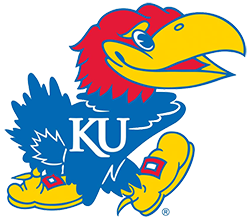A guide to requesting a powerful letter of recommendation
A well-crafted letter of recommendation can be pivotal in helping you secure competitive jobs, gain admission to graduate programs, or receive prestigious awards.
I am honored to support my students' academic and professional goals by writing recommendation letters, serving as a reference, and advocating for them when contacted by recruiters. To ensure I can write a strong, substantive, and effective letter, please follow the guidelines below.
- Consult with me: Please ask my permission before listing me as a reference, or preferably schedule a brief meeting to discuss your goals and the position or program you are applying to; this will help me to write the strongest letter.
- Provide details: Share information about the prospective employer or letter recipient (e.g., name, title, contact information, URL, and the position or award you are applying for). This enables me to tailor the letter effectively.
- Share materials: Please let me know which courses you took with me, when, and what your grades were. Also feel free to share with me your CV, GRE scores, GPA, or any relevant coursework or professional experience that can provide valuable context for the strongest letter.
- Allow sufficient time: Given the high volume of letter requests I receive each semester (typically 15-20), and to ensure I can dedicate the necessary time to crafting a strong, personalized letter for each student, please submit your letter request at least one, preferably two weeks prior to the deadline.
Key qualities I emphasize
I have a deep understanding of what companies and graduate programs look for in applicants. Drawing on this insight, I tailor my recommendation letters, and any related conversations, to highlight the qualities most valued by these institutions. Specifically, I emphasize the following areas:
Technical knowledge and academic performance. To ensure a meaningful evaluation of technical ability, students should have completed at least one of my courses with a grade of A or B. This reflects a solid academic foundation. I also value active participation, thoughtful questions, and engagement during office hours as key indicators of potential.
Integrity and ethical conduct. I place a high priority on integrity as a core component of a student’s character. Honesty in academic work, adherence to course policies, and a consistent commitment to ethical behavior are essential qualities I consider when writing recommendation letters. These traits reflect a student’s reliability and professionalism, qualities that are indispensable in both graduate studies and the workplace.
Time management. Demonstrated responsibility and punctuality (for example, regularly attending class sessions on time) and honoring commitments (e.g., on time completion of assignments and projects), are essential qualities for any professional. Employers routinely cite time management as a critical skill.
Communication skills. Strong communication, both written and verbal, is consistently cited by employers and graduate programs. I assess this through a student's emails, assignments, presentations, and project documentation.
Teamwork and collaboration. Employers and graduate programs value teamwork. In my EECS courses, collaborative projects allow me to assess a student’s ability to work effectively within a team, lead and motivate peers, and manage group dynamics to achieve successful outcomes.


Professor Hossein Saiedian
Electrical Engineering & Computer Science
Eaton Hall 3012
University of Kansas
1520 W 15th St
Lawrence, KS 66045-7621
+1 785 864-8812
saiedian at eecs.ku.edu